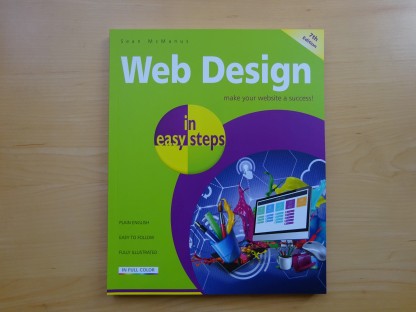
Coding Compendium
A free 100-page ebook collecting my projects and tutorials for Raspberry Pi, micro:bit, Scratch and Python. Simply join my newsletter to download it.
If you want to write comedy, radio is the perfect place to start. That was one of the themes that came across clearly at the London Comedy Writers Festival 2011, and the session dedicated to writing comedy for radio was packed.
On the panel were Tilusha Ghelani, producer for BBC radio comedy, who works on Just a Minute and Newsjack among other shows; James Kettle, who writes for The Now Show; James Carey, who wrote for Think the Unthinkable, sketch show Concrete Cow and Another Case of Milton Jones; and Max Dickins, an Absolute Radio DJ, writer and stand-up performer.

My pass, handbook and agenda from the London Comedy Writers Festival 2011
"Writing for radio is brilliant," said Kettle. "The money's not great, but it's not awful. Some think of it as the nursery slopes before doing scary stuff, but think of radio as an end in itself. It's a writer's medium. It's intimate, more like a novel than TV. You can get inside people's heads, go anywhere and do anything." He noted that many of the cultural masterpieces of our time are radio series such as the Hitchhikers Guide to the Galaxy, the Goon Show or On the Hour. Some of the best radio programmes (such as Old Harry's Game and Hitchhikers) could only work on radio. Radio audiences tend to be smart and well-informed, like writers, he said, and "it's nice to write for people like you".
With three comedy slots a day, Radio 4 commissions more comedy writing than anyone else, and the writer has more control over the end product in radio. It costs £280,000 to make a TV show, Kettle said, so "they won't let you spend that without a lot of other adults in the room. On Radio, there's not enough money for others to come in and mess your ideas around. It's fun and you're in control, broadly speaking. Quite a few big name writers come back to radio."
There's also a big potential audience if you write comedy for radio. The 6.30 slot on Radio 4 gets between one million and one and a half million listeners, and the topical podcasts can get a further one million listeners.
Max Dickins stressed that the BBC isn't the only place to go with your comedy writing. He said that commercial breakfast shows are desperate for sketches and jokes, and that you might be able to get a break by approaching your local BBC show or your local commercial radio station.
Ghelani explained that BBC Radio Comedy works as a supplier to the broadcasters and has to sell its shows to Radio 4, Radio 4 Xtra, or Radio 2. (They try to sell to Radio 1, but it never buys). Good shows can be rejected internally because they need to satisfy a producer who initially champions the script, the programme development group which filters out what gets taken to the broadcaster, and the broadcaster who buys the programme.
Compared to TV, radio is a fast medium. Sketches can go on air the same week, and a sitcom can go on the air in a year. That sounds like a long time, but Carey said he had a TV show pilot that was made two and a half years ago and they've only just decided which channel it's for.
Here are some tips from the panel on writing radio comedy and breaking in:
© Sean McManus. All rights reserved.
Visit www.sean.co.uk for free chapters from Sean's coding books (including Mission Python, Scratch Programming in Easy Steps and Coder Academy) and more!

A free 100-page ebook collecting my projects and tutorials for Raspberry Pi, micro:bit, Scratch and Python. Simply join my newsletter to download it.

Web Design in Easy Steps, now in its 7th Edition, shows you how to make effective websites that work on any device.

Power up your Microsoft Excel skills with this powerful pocket-sized book of tips that will save you time and help you learn more from your spreadsheets.

This book, now fully updated for Scratch 3, will take you from the basics of the Scratch language into the depths of its more advanced features. A great way to start programming.

Code a space adventure game in this Python programming book published by No Starch Press.

Discover how to make 3D games, create mazes, build a drum machine, make a game with cartoon animals and more!